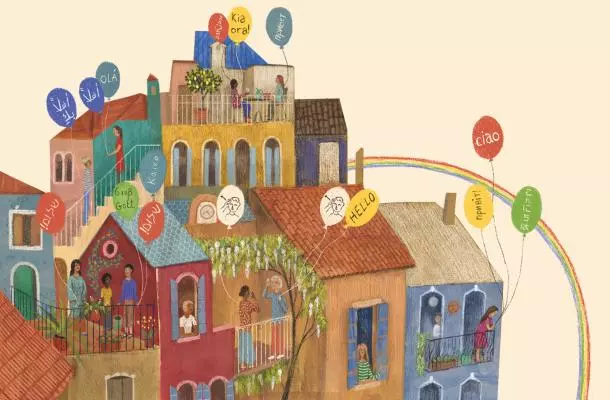International Mother Language Day
Multilingual and multicultural societies thrive through the preservation of their languages, which serve as conduits for traditional knowledge and cultural heritage.
However, linguistic diversity faces increasing threats as more languages vanish. Currently, 40% of the global population lacks access to education in their native language, a figure that exceeds 90% in certain regions.
Research underscores the benefits of using learners' native languages in education, fostering better learning outcomes, self-esteem, and critical thinking skills. This approach also supports intergenerational learning and cultural preservation.
- Theme 2024:
Multilingual education – a pillar of learning and intergenerational learning”.
Today, 250 million children and young people still do not attend school and 763 million adults do not master basic literacy skills. Mother tongue education supports learning, literacy and the acquisition of additional languages.
Multilingual education – a pillar of learning and intergenerational learning”, are crucial for inclusive education and the preservation of indigenous languages.
By starting education in the learner's mother tongue and gradually introducing other languages, barriers between home and school are bridged, facilitating effective learning.
Technology has the potential to address some of the greatest challenges in education today. It can accelerate efforts towards ensuring equitable and inclusive lifelong learning opportunities for all if it is guided by the core principles of inclusion and equity.
Multilingual education based on mother tongue is a key component of inclusion in education.
- What is Intergenerational learning ?
Intergenerational learning is defined as learning that happens across different age groups and generations. Integral to concept is the multi-directionality of learning: children can learn from adults, adults from children, younger children from older siblings, and from other relatives. It is a collective learning process in which the whole family learns together.
- Book
- The role of teachers:
The overall aim of IMLD 2024 is to contribute to the achievement of Sustainable Development Goal 4 by recognizing the role of teachers in promoting multilingual teaching and learning through reading and technology. in different languages
Students : Share key messages via this social media pack.

.png.jpg.webp?itok=ddFdPJOE)

No comments:
Post a Comment